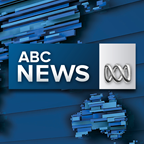
Updated
"A gentle answer turns away wrath, but a harsh word stirs up anger." Proverbs 15:1
My father wrote those words above his signature in my autograph book when I was a kid.
People collect selfies now — not autographs, and share memes and tweets — not proverbs, but I find myself thinking about those words more and more often as I watch the national debate unfold on Q&A each week.
Last week I was reminded by Nobel Peace Prize winner Muhammad Yunus when he was asked about the reaction of Muslims to the words and cancelled visit of Ayaan Hirsi Ali.
"If a large number of Muslims are angry with her, there's something missing in her tone, in her voice, in her way presenting the case … How to make it happen in the way you get across your views … Nobody is against the freedom of speech, but that gives you a responsibility," he said.
I'm not a Muslim or even a man of faith so I don't know what it's like to listen to people attack my religion.
I don't know what it's like to have people produce petitions or videos asking me to stay away.
I certainly don't oppose freedom of speech and neither did our panel, which alongside Muhammad Yunus included one of Australia's most respected journalists, two rising stars from opposing sides of politics and the former prime minister of Denmark, Helle Thorning-Schmidt.
But it didn't include Ayaan Hirsi Ali. It's disappointing she didn't make it to Australia or Q&A.
We'd tried to put together a discussion where Ms Hirsi Ali could meet her opponents in a calm, reasoned argument but it's not just security concerns that prevented that debate: the tone of political discussion around issues like Islam in Australia is making reasonable discussion almost impossible.
 Photo:
Somali-born Ayaan Hirsi Ali lives constantly under real threat from extremists for expressing her opinions. (Reuters: Tobias Schwarz)
Photo:
Somali-born Ayaan Hirsi Ali lives constantly under real threat from extremists for expressing her opinions. (Reuters: Tobias Schwarz)
Ayaan Hirsi Ali's opponents are battered and bruised by the constant attacks on Islam across the media and on the street, while Ayaan Hirsi Ali lives under real threat from extremists — not those who sign petitions or produce videos — but those who want to kill her for expressing her opinions.
Q&A is designed to create a safe environment where opponents can meet to discuss their differences. That makes it an almost unique place in the modern Australian media, which seems more and more focused on narrowing, rather than broadening our views.
We now live in a filter bubble where algorithms ensure that users only see the stories they want to "like", while ideologically committed newspapers, commentators and politicians reinforce the prejudices of their audiences rather than challenge them.
On Q&A we do something different: we deliberately bring together audience members and panellists who disagree and ask them to participate in a civil debate.
On Q&A you're bound to hear views you don't share — that's the whole idea.
I think what really outrages our most vocal critics is that we're breaking the new rules of the media opinion game: we're exposing people to opinions they don't agree with.
 Photo:
People with opposing opinions — like Josh Thomas and Bob Katter — are deliberately brought together on Q&A
Photo:
People with opposing opinions — like Josh Thomas and Bob Katter — are deliberately brought together on Q&AThere clearly are people who just want to hear their own views reinforced, to hear their own opinions celebrated and echoed.
It's a market for the media to tap, but that's not what free speech is for.
The point of free expression is not to thump your tub, beat your chest and deride your opponents: it's to use your arguments to shift the opinions of those you disagree with or who are undecided.
That's the opportunity on Q&A and smart people on all sides seize it to argue their case to people who came into the room or switched on the screen not expecting to agree with them. Each mind they change is a victory.
Janet Albrechtsen is a sometime panellist and sometime critic of Q&A.
Writing in The Australian this week about the sacking of Mark Latham and 18C she wrote:
"Hurling abuse may tickle some on your own side, but if we refuse to have honest debates about the bounds of decency as determined by individuals in a free and civil society, we embolden the left to look to the power of the state to shut down free speech."
I don't agree with all she writes. The problem is certainly not just on one side. But Albrechtsen is absolutely right about the tone of the current debate.
Too often politicians and commentators are playing the man or woman rather than doing the hard work of understanding their opponents case and challenging the substance of their arguments.
Hurling abuse may amuse your staunchest supporters but it doesn't change minds.
Even worse, the constant abuse and personal attacks of winner-take-all warriors drives reasonable people from the field.
As Albrechtsen argues, it's up to us all to decide the bounds of decency for an honest debate. Unless we can create a safe environment for that debate, we prevent people like Ayaan Hirsi Ali and those who critique her interpretation of Islam, from holding the discussions our democracy needs.
Topics: religion-and-beliefs, community-and-society, australia
First posted






 Add Category
Add Category
